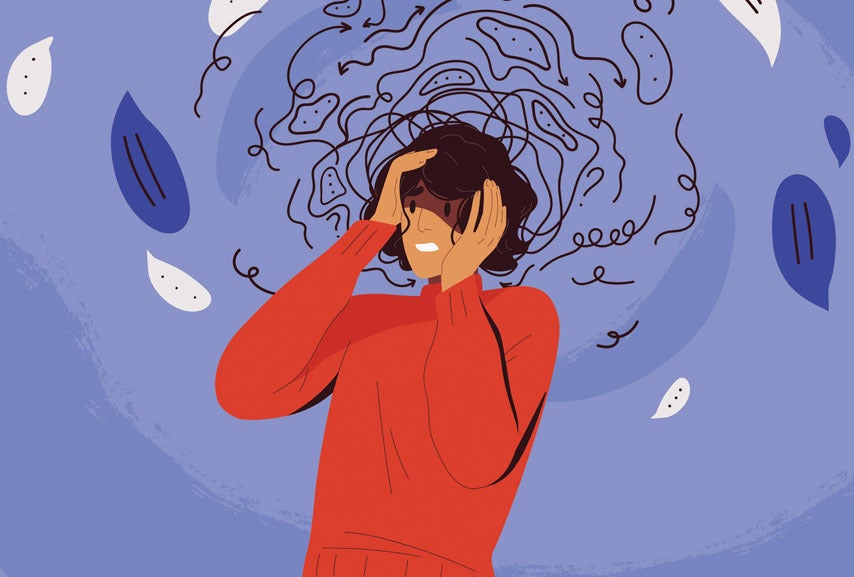
As I shared in the October Small Law column, a close family member passed away this summer. I know the timetable for grief differs for everyone. However, in this time of COVID, everything feels protracted even as the calendar pages spin faster than a carousel. The next chapter in history appears in no great hurry to arrive and yet, how can it be one month from the end of 2020?
How can time be speeding by and life still feel permanently stuck on pause? This big blue marble we call home continues turning. Temperature changes remind us that seasons haven’t stopped in their cycle. Farmers markets are slowly transitioning from summer to fall crops. Even as the outside scenery shifts, my inside landscape seems like a still life painting, waiting for the internal movement of my emotional clock to resume.
How about you? Have the gears which turn the chronograph on your emotions stopped turning or jerked abruptly from moment to moment this year?
As I contemplate 2020, I feel like I am watching two movies simultaneously side by side. One movie shows the historical events occurring right before our eyes playing to the music of Billy Joel’s “We Didn’t Start the Fire”:
We didn’t start the fire
It was always burning
Since the world’s been turning
We didn’t start the fire
No we didn’t light it
But we tried to fight it
The other movie shows events happening through online livestreams of meetings, weddings, graduations, and events played to the lyrics of Rush’s “Time Stand Still”:
Time stand still —
I’m not looking back —
But I want to look around me now
See more of the people
And the places that surround me now
As much as I want to move to the next reel in life’s story, to the moment beyond the one that we are all living, I also do not want to miss what may be right in front of me: “the people and the places that surround me now.”
I missed what I consider a “divine” appointment the other day. I was collecting my mail from the community mailbox on our street and a neighbor whom I haven’t seen in months and don’t know well was at his mailbox at the same moment. He stopped to ask about my family and how we were faring and seemed inclined to have a long conversation. I politely told him that we were well. It was the end of a long day and I was tired and had to start thinking about dinner so I rushed through the small talk with a smile and a wave and walked into the house.
Sitting down to dinner with my husband I realized that I missed an opportunity to engage and express concern about the neighbor and his family. I felt like I failed to care properly for someone else. I have felt stuck in a perpetual state of exhaustion, trying to keep up with the carousel even as I trudge through a season of grief, of woe.
It suddenly occurred to me that a season of woe is also a season of whoa: a time to stop trying so hard to race with the horses spinning on the carousel. I need to give myself permission to not be “on” for everyone else all the time.
I think perhaps that in dealing with grief, illness, or stress, we can work too hard to get past it. Healing and recovery rarely come quickly. When we lose someone we love, it takes time — a lot of time — to heal. When illness or stress hit, we have to give our bodies and minds the time and nourishment needed to restore. We need spaces of stillness and quiet: time to refresh our souls and readjust our mental and emotional diets.
We will need time to heal from the events of this year. Whether we acknowledge it or not, none of us are unscathed. I had a long conversation with a close friend with whom I have been trying to catch up with for a month. I have texted her, left voicemails, and emailed her. When we spoke, she apologized for not responding. We both admitted that it has been challenging to respond to anyone regardless of the closeness of the relationship. She spends all day engaged with people, either online for work or with her kids who are now homeschooling. Time alone occurs in the shower and when she falls asleep.
The pressure to complete our tasks professionally and personally compounded by the state of the world could easily result in a season of woe for us all in some way, with or without a personal loss. But with a shift of perspective and a word substitution, we can transform this season. Not by denying it or lamenting it, but by embracing it. Instead of trying to find a way to leap past this chapter, embrace the whoa. Stop. Let time stand still. Register the emotions and the experience. Without struggle, there is no growth. In order for spring to happen, winter must come first.
Once we have allowed ourselves time to whoa, when we have stilled ourselves long enough to recover, when the time is right — we will be ready to GIDDYAP!




